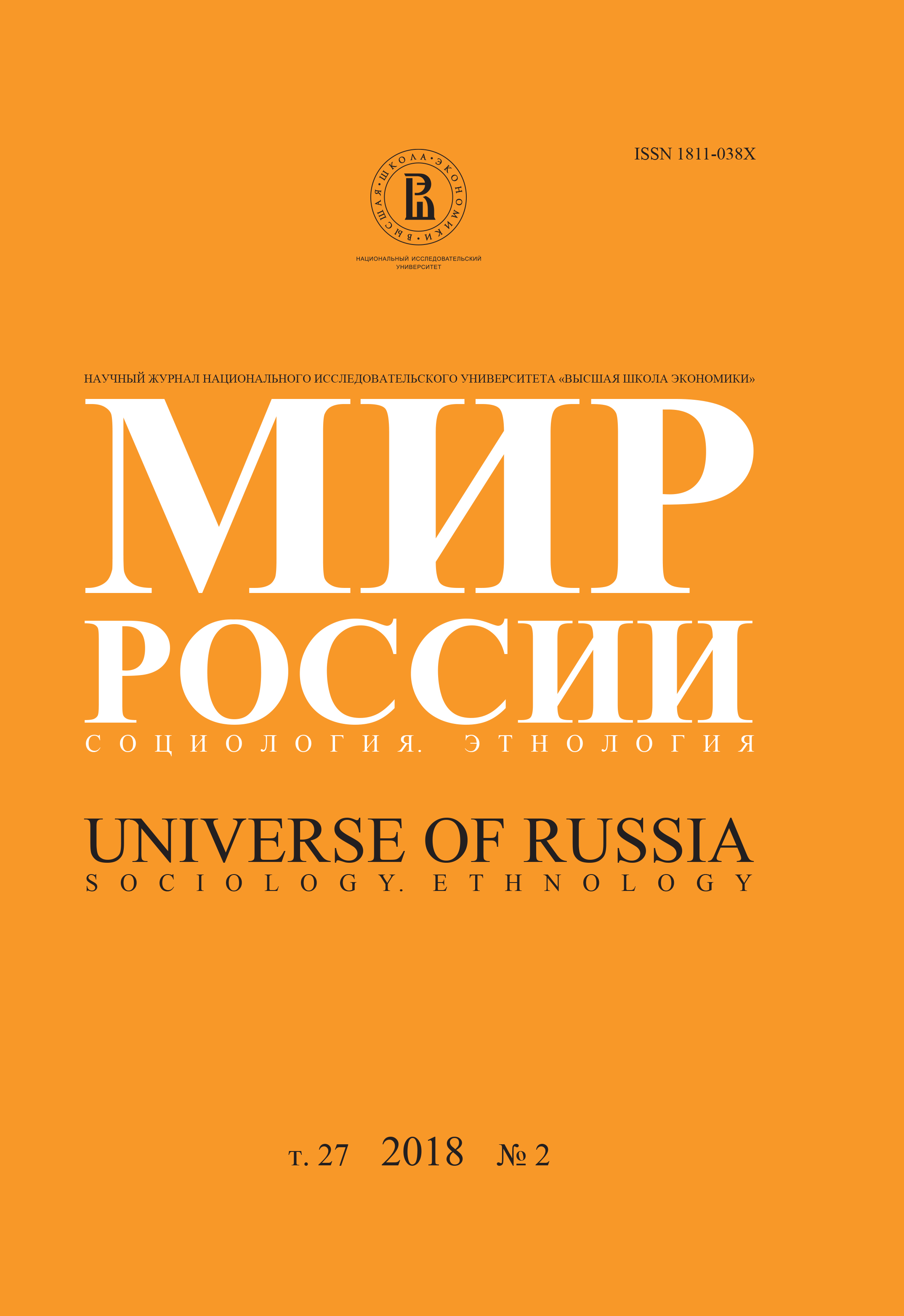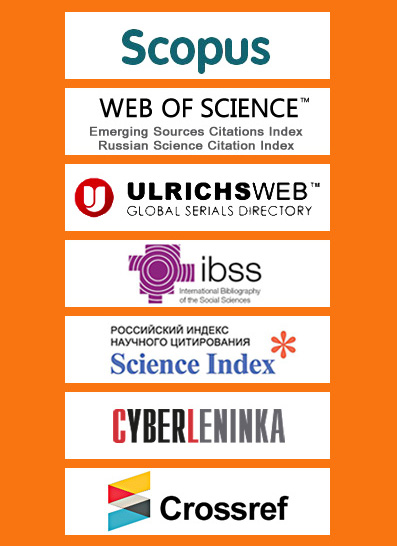Траектории старения женщин в современной России
Аннотация
Ирина Андреевна Григорьева – доктор социологических наук, профессор, кафедра теории и практики социальной работы, факультет социологии, Санкт-Петербургский государственный университет; Центр технологий электронного правительства, Университет ИТМО. Адрес: 191124, Санкт-Петербург, ул. Смольного, д. 1/3, 9-й под. E-mail: soc28@yandex.ru
Ирина Леонидовна Сизова – доктор социологических наук, профессор, кафедра прикладной и отраслевой социологии, факультет социологии, Санкт-Петербургский государственный университет. Центр технологий электронного правительства, Университет ИТМО. Адрес: 191124, Санкт-Петербург, ул. Смольного, д. 1/3, 9-й под. E-mail: sizovai@mail.ru
Цитирование: Григорьева И.А., Сизова И.Л. (2018) Траектории старения женщин в современной России // Мир России. Т. 27. № 2. С. 109–135. DOI: 10.17323/1811-038X-2018-27-2-109-135
В центре внимания авторов статьи находятся траектории старения женщин в современной России, которые трансформируются в условиях увеличивающейся продолжительности жизни, сокращающихся ресурсов на обеспечение старости и возрастающей неопределенности будущего. На материалах современных зарубежных и российских социологических исследований анализируются концепт старения и представления о положении пожилых людей в мире. Авторы приходят к выводу, что необходимо переосмысление места старшего поколения в обществе, акцентирование потенциала нынешних и будущих пожилых. Эта переоценка представляет вызов как для социологической науки, так и для социальной безопасности общества. Исключение эйджизма, т.е. возрастной дискриминации на институциональном уровне и в общественном дискурсе, предполагает кардинальную смену парадигмы старения и вовлечения пожилых во все стороны социальной жизни, помощь им в выстраивании жизненных стратегий в условиях множественности выборов.
Вторая часть статьи посвящена дискуссиям о современном феномене феминизации старости, которые детализируют картину происходящих изменений в стратификационных моделях и неравенствах, формируют отдельные «миры» старости. Особенно негативная ситуация складывается в России, где быстро растет доля пожилых женщин, а их социальная изоляция поддерживается на нескольких уровнях: в системе занятости, в частно-семейной сфере, в самоорганизации и в субъективном восприятии собственной жизни.
Теоретические посылы данной статьи послужили толчком для прикладного изучения основных особенностей старения российских женщин после 50. На базе данных трех волн Российского мониторинга экономического положения и здоровья НИУ ВШЭ (2009, 2011, 2015 гг.) изучались проблемы занятости, самоидентификация, формы активности и потребности в организации жизни российских женщин. Активным во второй половине жизни российских женщин является возраст от 50 до 60 лет, затем следует заметный спад. Структура и виды жизненных занятий российских женщин вне трудовой деятельности в целом похожи и являются традиционными. Их интенсивность и разнообразие варьируются в зависимости от нескольких взаимосвязанных компонентов: возраста женщин, вовлеченности в профессиональную деятельность, семейного положения, материального обеспечения и состояния здоровья.






